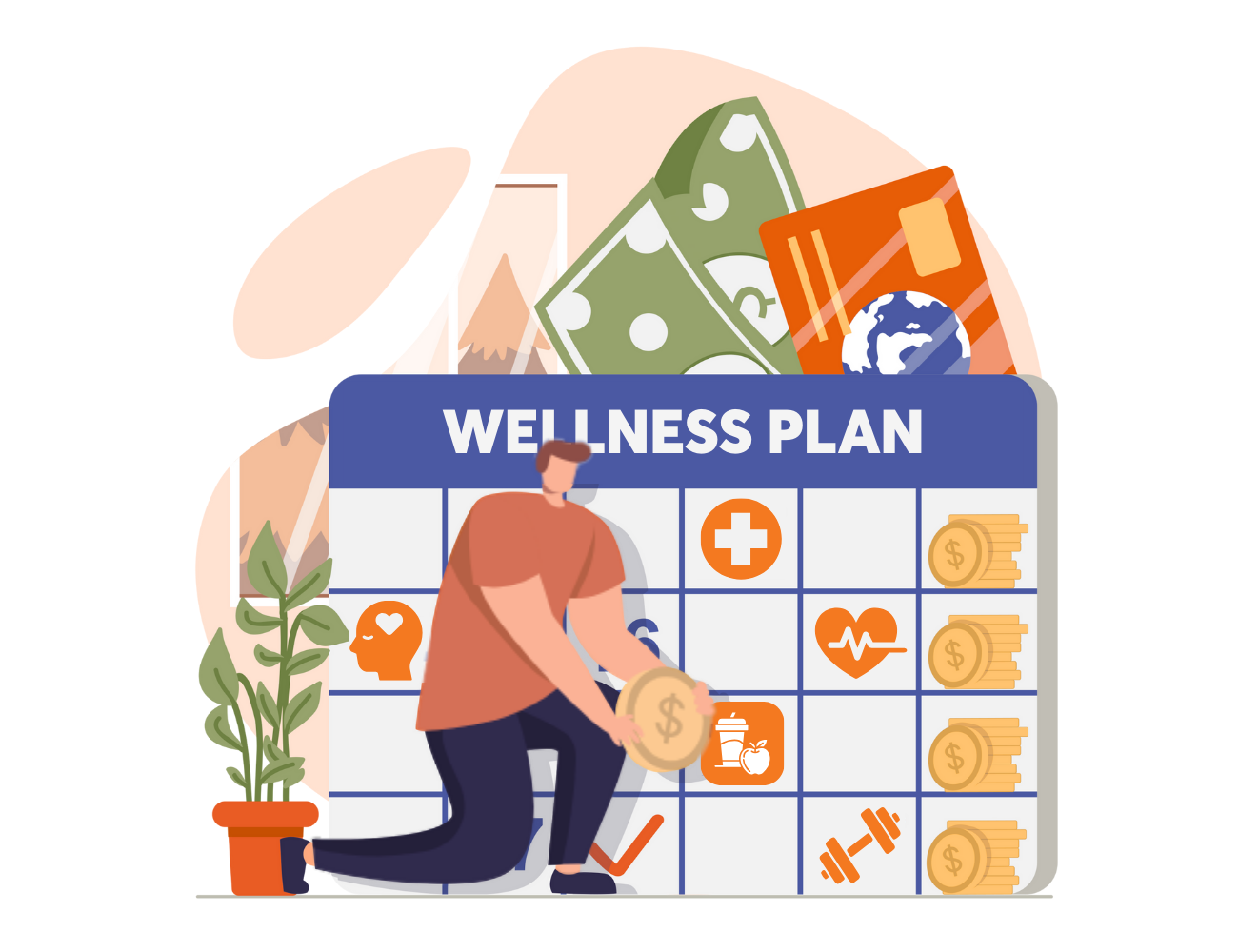Updated on February 26th, 2019
March is the National Nutrition Month, created by the Academy of Nutrition and Dietetics (AND), which means everyone gets to spend a whole month talking about food. Yay!
While all workplace wellness programs should touch upon nutrition year-round, it is not a bad idea to dedicate a whole month to educating employees on the topic. The AND has a lot of great content that is free on their main website. Employers might find it helpful to use these resources to guide their wellness initiative efforts.
Need more ideas? Below is a list of curated resources on the topic.
#1 Event Ideas
Events are a great way to bring people together and provide a sense of camaraderie among colleagues working towards a common goal. Here are some events employers can organize to get conversations going.
- Employee Lunch Potluck – This idea comes from the AND toolkit. Employees can bring their favorite healthy dish to share with their co-workers. Even better, ask participants to submit their recipes to compete in a “Best Recipe Competition.” A healthy cookbook can be raffled out or given as the prize.
- Nutrition Lunch and Learn – Invite a dietitian/nutritionist/health coach to come and give a presentation on healthy eating. Provide a “takeaway station” for resources that employees can collect and take with them.
- The F&V Challenge – Fruits and vegetables are essential, but most people don’t know where to start unless they’ve actively sought out information on how they can incorporate them into meals. Kick-off healthy eating habits by running a F&V Challenge. For two weeks, encourage participants to add fruits and vegetables to all their meals. Add a social aspect by dedicating a hashtag (e.g., #NationalNutritionMonthCompanyName) on social media where people can share their meals. Even better, encourage them to share the recipes with their submissions, which can later be put together to create a healthy company cookbook!
- Breakfast/Lunch Bar – If budget permits it, offer a breakfast or lunch buffet with healthy options. It can be as simple as yogurt with fruits and granola or an omelet station. Most people can appreciate a free meal, and they will get to taste first-hand how delicious nutritious foods can be!
- Field Trip To The Farmer’s Market – Encourage consumption of whole foods by organizing a field trip to a nearby farmer’s market. Employers can support local farming and healthy eating further by raffling off farm shares to trip participants. Alternatively, many farms offer tours, so employees can learn more about how their foods are grown!
#2 Posters To Put Up Around The Office
Posters help create a lively atmosphere in the office. They turn dull, white walls into montages of information that employees can stop by to learn about healthy eating.
Quick tip: Bathroom doors are prime real estate for posters!
Posters should be eye-catching. Avoid ones filled with big, dense blocks of words as they tend to scare people away. It’s better to put up many simple ones that will deliver bite-size information.
Check out the Wellable Pinterest Board as well as out this eBook for informational posters to use around the office.
#3 Nutrition Book Club
Though the internet has a lot of short articles on nutrition, books are still superior in quality. A good book is one written by an author who’s an expert in the field and who has done years of research.
Encouraging employees to exchange books and discuss in groups fosters conversations and engagement in the company. There are many options out there to choose from, but here are some suggestions that can help organizations kick things off.
- How Not to Die Discover the Foods Scientifically Proven to Prevent and Reverse Disease by Michael Greger, M.D. He breaks down the book into the top 15 causes of death and how food can be used to prevent and even treat them. Dr. Greger is also the founder of NutritionFacts.org, a website filled with evidence-based information on healthy eating.
- Whole: Rethinking the Science of Nutrition by T. Colin Campbell, Ph.D. with Howard Jacobson, Ph.D. This book is T. Colin Campbell’s follow-up on his bestseller The China Study (another must-read!). Campbell is a proponent of whole foods over nutritionally isolated counterparts, such as pills, supplements, and fortified foods.
- Intuitive Eating: A Revolutionary Program That Works by Evelyn Tribole, M.D., R.D. and Elyse Resch, MS, R.D., F.A.D.A. This book is technically not about nutrition; it’s about building better eating habits. Given Americans’ love for super-sized meals, the authors’ intuitive approach has earned a place in many health-oriented book clubs.
- 10% Human: How Your Body’s Microbes Hold the Key to Health and Happiness by Alanna Collen. This is another unconventional suggestion, as it does not discuss solely nutrition. The main subject is microbiota, the trillions of microorganisms living within us and how they can affect wellbeing, both physically and mentally. Collen shows the importance of living a harmonious life with these organisms, including eating the right diet. The book is firmly based on peer-reviewed research, an impressive feat given that the research field itself is still in its infancy.
Nutrition is an important topic that needs special attention. Spread the Academy’s 10 key messages to help employee thrive through the transformative power of food and nutrition.
- Discover the benefits of a healthy eating style.
- Choose foods and drinks that are good for your health.
- Include a variety of healthful foods from all of the food groups on a regular basis.
- Select healthier options when eating away from home.
- Be mindful of portion sizes. Eat and drink the amount that’s right for you, as MyPlate encourages us to do.
- Keep it simple. Eating right doesn’t have to be complicated.
- Make food safety part of your everyday routine.
- Help to reduce food waste by considering the foods you have on hand before buying more at the store.
- Find activities that you enjoy and be physically active most days of the week.
- Consult the nutrition experts. Registered Dietitian Nutritionists can provide sound, easy-to-follow personalized nutrition advice to meet your lifestyle, preferences and health-related needs.












